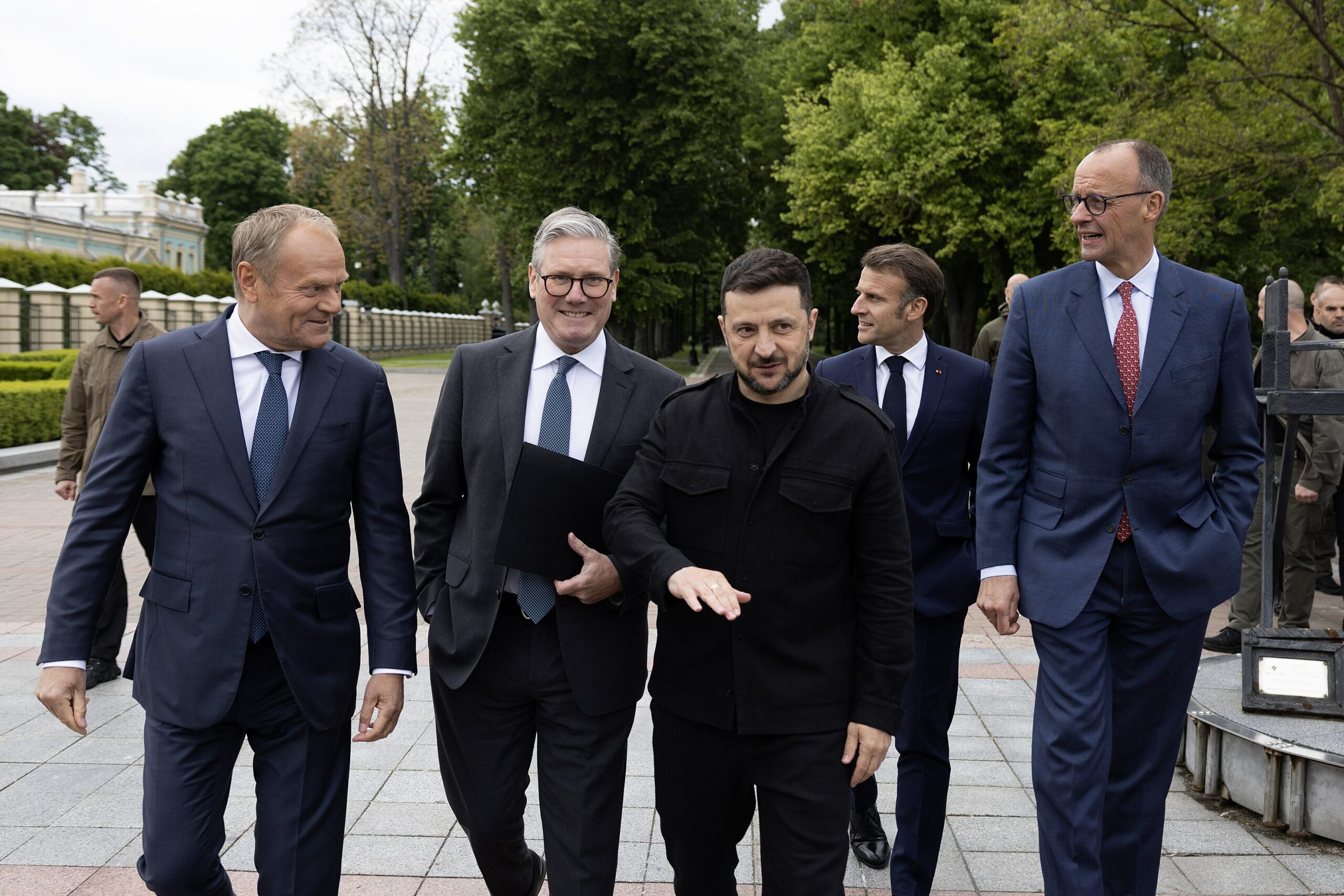 BBC News
BBC NewsBorrowing was £17.4bn last month, the second highest October figure since monthly records began in 1993.

Finito World
There was a time when a prime minister stood at a lectern, flanked by European leaders, and the nation braced itself for a betrayal. Now it happens with a smile and a “landmark deal” label, lauded as “win-win” by a man who once sold himself as the moderate custodian of Brexit’s fragile promise.
Today’s summit at Lancaster House — that palatial backdrop of past grandeur — was billed as the dawn of a new era. Instead, it revealed what many feared: Keir Starmer is not stewarding Brexit; he is diluting it. The deals agreed — covering e-Gates, pet passports, youth mobility, SPS alignment, and, most controversially, a 12-year fisheries agreement — are being spun as pragmatic diplomacy. But in truth, they mark the beginning of an EU-lite future, where sovereignty is bartered in increments.
One of the quieter components of today’s deal — the youth mobility scheme — is already being touted in Whitehall as a win for employability. It will, we’re told, give young Britons the chance to work and travel more freely across the continent once more. Yet scratch beneath the varnish, and the picture is mixed. According to the ONS, youth unemployment in the UK stands at 11.6%, while in Spain and Italy — two likely destinations for British graduates — it hovers near 28%. The promise of “mobility” may end up looking less like opportunity and more like underemployment in sunnier climes. And in an era where British SMEs are crying out for skilled labour at home, exporting talent may suit the EU more than it suits us.
Perhaps that’s why Kemi Badenoch, the Conservative leader, was quick off the mark and one senses that if not for the rise of Nigel Farage she might have a major opportunity. “Gobsmacked,” she declared. “A sell-out on fishing.” For a woman schooled in the grammar of Brexit — in divergence, opportunity, and national control — the Prime Minister’s photo op in the warm glow of Ursula von der Leyen was a betrayal of both principle and narrative. “We’re back to square one,” she lamented.
The real issue? Not just what’s in the deal — but what it signals. The 12-year fisheries pact may offer “stability”, but to many in the fishing industry, it reeks of managed decline. The Scottish Fishermen’s Federation, never prone to hyperbole, labelled it a “horror show”. One skipper in Peterhead told The Times today: “We were sold Brexit as a rebirth. This is just reheated surrender.”
Of course, some will argue that Britain benefits. Eased travel for young people. Market access. Fewer queues at Calais. These are real gains. Starmer points to “British burgers back in Europe” as a tangible win. But who campaigned to leave the EU to sell cheeseburgers in Bruges?
And it is not just about fish and freedom of movement. There is symbolism in the speed. “In six months,” Starmer beamed, “we did what used to take years.” But speed isn’t always strength. Sometimes it’s sleight of hand.
The Prime Minister says this is about “bills, jobs, and borders.” But ask any Brexiteer what that really means, and the response might be: which borders, and whose jobs? Youth mobility is not uncapped, but it is clearly back. SPS alignment makes food exports easier — but also means importing EU regulation through the back door.
Public opinion is shifting, yes. Polling from Redfield & Wilton shows 59% of Britons now believe Brexit has “gone badly”. But the prescription was reform, not reabsorption. To nurse Brexit’s wounds by defaulting back to Brussels is an abdication — one masked in technocracy.
Meanwhile, European Council President Antonio Costa declared, “The customs union is the past.” Perhaps. But sovereignty isn’t. And Starmer’s quiet manoeuvre around it is precisely why the Tories — even in their present zombie state — believe they have a way back.
In the long run, the electoral question is simple: do voters want a Labour government that manages Brexit out of relevance, or a Conservative one that dares to revive its spirit? If Farage can articulate that difference with clarity – and he usually does – today’s “historic moment” may yet become tomorrow’s cautionary tale.
Because when it comes to Brussels, the lesson of the last thirty years remains: what looks like a partnership often turns out to be a purchase. And Britain, once again, may have sold itself too cheap.